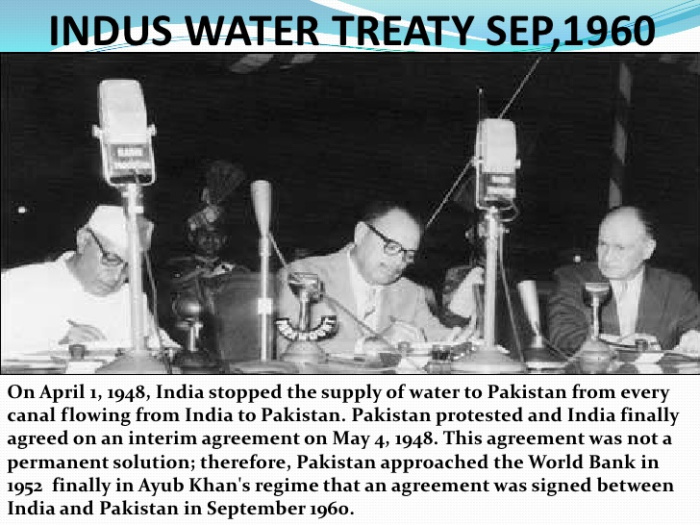
World Bank arbitration of the Indus Water Treaty was signed on 19 September 1960 between Pakistan and India
Washington … News Time
The consolidation of Indus Water Treaty has become an Indian conspiracy to make the World Bank a bundle of Pakistan. The World Bank has forgiven Pakistan’s complaints and evidence against India on the construction of Kishanganga Dam, inaccessible and arbitrarily. There was no consensus in meeting with Washington’s delegation to investigate the World Bank’s reservations. The Pakistani delegation met the World Bank’s CEO Kristalina Georgieva and the South Asian team on May 22-21, in which India informed Pakistani reservations on the construction of Kishanganga Dam.
The Pakistani delegation led by Attorney General Ashtar Ausaf Ali. On this occasion, the Pakistan delegation discussed the steps and discussed measures under various procedures. Under the agreement, the World Bank asked in a friendly manner to resolve matters. During the meetings, the Pakistani delegation raised the issue of the recent opening of Kishanganga Dam Project by Prime Minister Modi. Pakistan objected to the design of the 330 megawatt project located in Bandipora area of North Kashmir and said that it is not compatible with the posts of Sindh Task Agreement, While India says it is in accordance with Indus Water Treaty.
The World Bank says that it is an agreement between Pakistan and India, which is an important international agreement to deal with effective and effective challenges of water, between the two countries. The contractor’s World Bank’s role is extremely limited. The World Bank says that in the future, the World Bank will work closely with Pakistan and India and will keep its responsibilities in a fair and neutral manner. Earlier, Pakistan’s four-member delegation led by Attorney General Ashtar Ausaf Ali informed the President of the World Bank and other officials about India’s protection against the Indus Water Treaty violations. Pakistan also requested the World Bank to play its role in the present situation. It is clear that India’s negotiation of Kishanganga Dam on Pakistan’s meeting with the World Bank’s President was discussed at the height of the dam and its water reservoir and the dispute resolution was resolved. For the establishment of mediation court was demanded.
Between Pakistan and India in 1960 river Sindh and Indus Water Treaty was found to distribute water to other rivers fairly.The agreement includes the World Bank. Under the agreement, India will get more water of Beas, Ravi, and Satluj, which will flow into Punjab in Punjab, which will increase control over these rivers. While the western rivers of Jammu and Kashmir will be allowed to use more water in Chenab, Jhelum and Sindh. However, India has broken the deal on which Pakistan has come to the World Bank. This time, Indian Prime Minister Narendra Modi inaugurated the Kishanganga Dam Power Plant in the occupied Kashmir, despite the protest of May 21. Apparently, the purpose of building this dam is electricity production, but this flow has planned India to occupy water and it is also a violation of Indus Water Treaty. Under this project, Kishanganga, the river auctioned water will turn 23 miles long to the canal and will reach it in the underground power station. Through the project, one billion 71 million units of electricity were generated. India started the Kishanganga Dam construction project in 2007. Against this, Pakistan referred to the World Mediation Court on May 17, 2010.
The World Arbitration Court, established in Hague City of Holland, recognizing Indian rights on water, allowed New Delhi to continue working on the Kishanganga dam project. The court ordered India to remove water from the river auction by 9 square meters per cent, but the water level remained consistent with the environment. On the edge of the auction, Pakistan is constructing 969 mega watts Kishanganga Dam Hydro Electric Project, which has also been inaugurated. Pakistan says it will affect water flow for Pakistan in the Kishanganga dam project. Between Pakistan and India in 1960, ‘Indus Water Treaty’ was found to fairly divide the river Sindh and other rivers.



